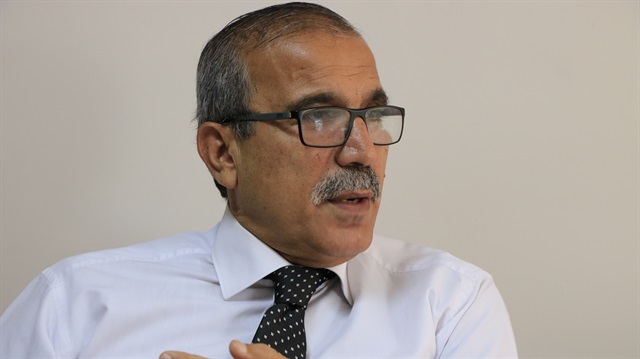

Kurdish regional independence, according to Aydin Beyatlı
Kurd region govt is forcing Kirkuk officials to show support for next week’s referendum on independence, Turkmen leader says
The Kurdish Regional Government (KRG) has been behaving oppressively in Kirkuk in the run-up to next week’s referendum on Kurdish regional independence, according to Aydin Beyatli, chairman of the Turkmeneli Association Federation.
Speaking to Anadolu Agency on Friday, Beyatli said that Iraqi Turkmen were “deeply apprehensive” about next Monday’s poll and were following developments closely.
“Except Israel, all countries have voiced their opposition to the referendum,” Beyatli said. “But the KRG nevertheless appears set to go through with it.”
Pointing out that Iraq’s Supreme Court had ruled the upcoming poll to be both illegal and unconstitutional, he described KRG President Masoud Barzani's insistence on holding it as “political suicide”.
‘Saddam era’
Warning that the poll could give rise to fresh conflicts in the region, Beyatli cited “rumors” that officials in Kirkuk were being forced to show support for the referendum and that those who refused to face the threat of punishment.
“Just like in the era of Saddam Hussein,” he said. “Whenever Saddam wanted to adopt some new resolution, Turkmen, Arabs and Kurds were threatened unless they showed support for it.”
“It’s the first time we’ve seen this kind of pressure on Turkmen officials since the Saddam era,” he added.
He went on to say there had been attacks on prominent Turkmen figures in Kirkuk city and that the Iraqi Turkmen Front's office had been shot at -- moves he described as “intimidation”.
“Kirkuk is a Turkmen city that is administratively linked to Iraq’s central government,” he said.
“Iraqi security forces should therefore be deployed in the province and protect the Turkmen and Arabs living there instead of playing the role of mere spectator,” he asserted.
“If Iraq can't do what’s necessary, then the United Nations -- including Turkish security elements -- should take charge of the city,” Beyatli added.
Opposition
Slated for Sept. 25, the non-binding referendum will see residents of northern Iraq’s semi-autonomous Kurdish region vote on whether or not to declare full independence from Iraq.
Baghdad firmly rejects the planned poll, saying it will adversely affect the fight against Daesh, which -- despite a string of recent defeats -- still maintains a significant presence in northern Iraq.
Turkey also opposes the planned referendum, insisting that the region’s stability depends on the maintenance of Iraq’s unity and territorial integrity.
Washington, too, has voiced reservations about the regional poll and has repeatedly asked the KRG to postpone it.
Iran, for its part, has vowed to close its border with the Kurdish region in the event that it formally declares independence.
#Iraq
#Aydin Beyatli
#kirkuk
#KRG
#Kurdish region
#Masoud Barzani
#Referendum
#Turkmeneli

